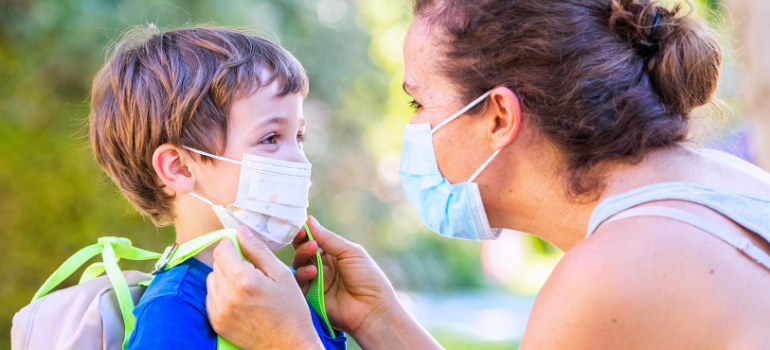Pediatrics
Want to learn more about this at Kettering Health?
Back-to-school season has arrived again, so parents and guardians gather supplies and signing forms galore. To help you stay on top of your child’s health before that first day arrives, here are some simple back-to-school health tips.
Schedule an annual check-up
A wellness check-up is a great opportunity to help kids transition from the “lazy, hazy, crazy” summer days to the scheduled, busy pace of school. It’s also a great opportunity to get clarity from a healthcare provider on any health-related trends or headlines you have questions about.
“An annual wellness exam gives your child’s healthcare provider a chance to check your child’s overall health, look for any emerging problems, answer questions, and offer advice about staying healthy,” says pediatric nurse practitioner Joia Henson.
Students should also have their vision and hearing checked. It’s also important to ensure they’re current on immunizations to reduce their risk of severe illness. Check with your child’s school to see which immunizations are required before their first day back.
Any student playing a school sport should get a sports physical done during this time as well.
Have conversations about healthy habits
Back-to-school season is prime time for germs and illnesses to spread, says Dr. Krista Gelford, a pediatrician with Kettering Health.
“Once kids start back to school, we typically see an increase in visits,” says Gelford. “Common illnesses we see during this time of year can be caused by bacteria and viruses along with environmental factors.”
Students should be comfortable practicing good hygiene to stop the spread of germs. Before your child returns to school, discuss healthy habits with them, such as how to wash their hands and when. Even teaching them safe ways to cough or sneeze (into a tissue or their elbow) can improve their and their classmates’ health.
Set them up for success
Sleep is crucial for your child’s overall health. Lack of sleep can cause problems with learning, concentration, and mood. And if summertime means later nights and inconsistent sleep schedules, start adjusting your child’s evening routines at least a week before school starts.
The amount of sleep your child needs depends on their age.
- Teens need eight to 10 hours
- Younger kids need nine to 12 hours
- Preschoolers need 10 to 13 hours










